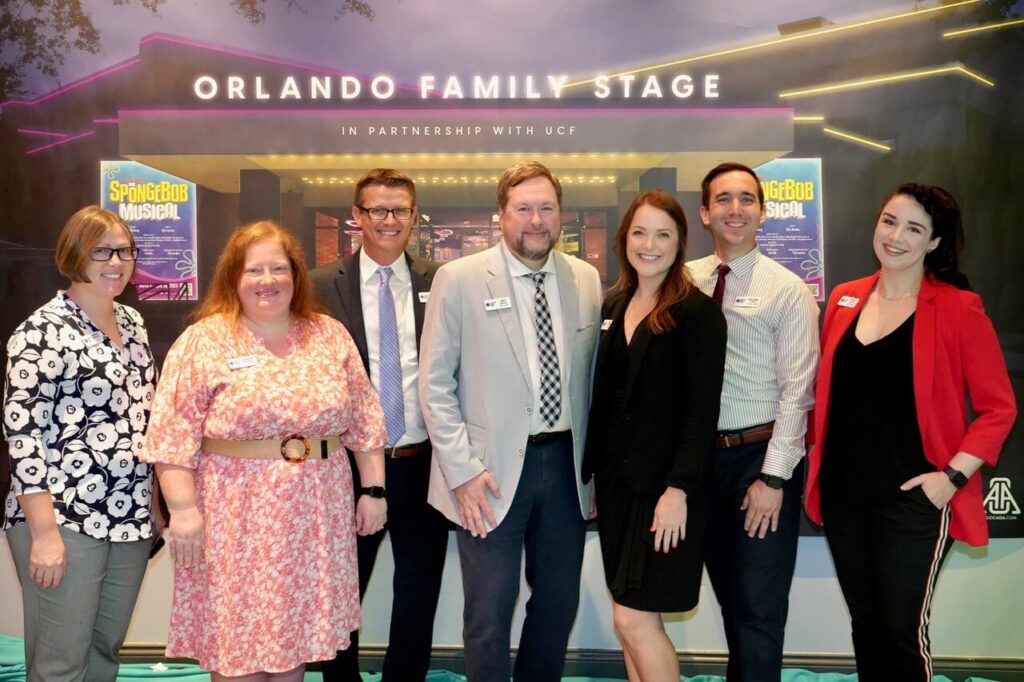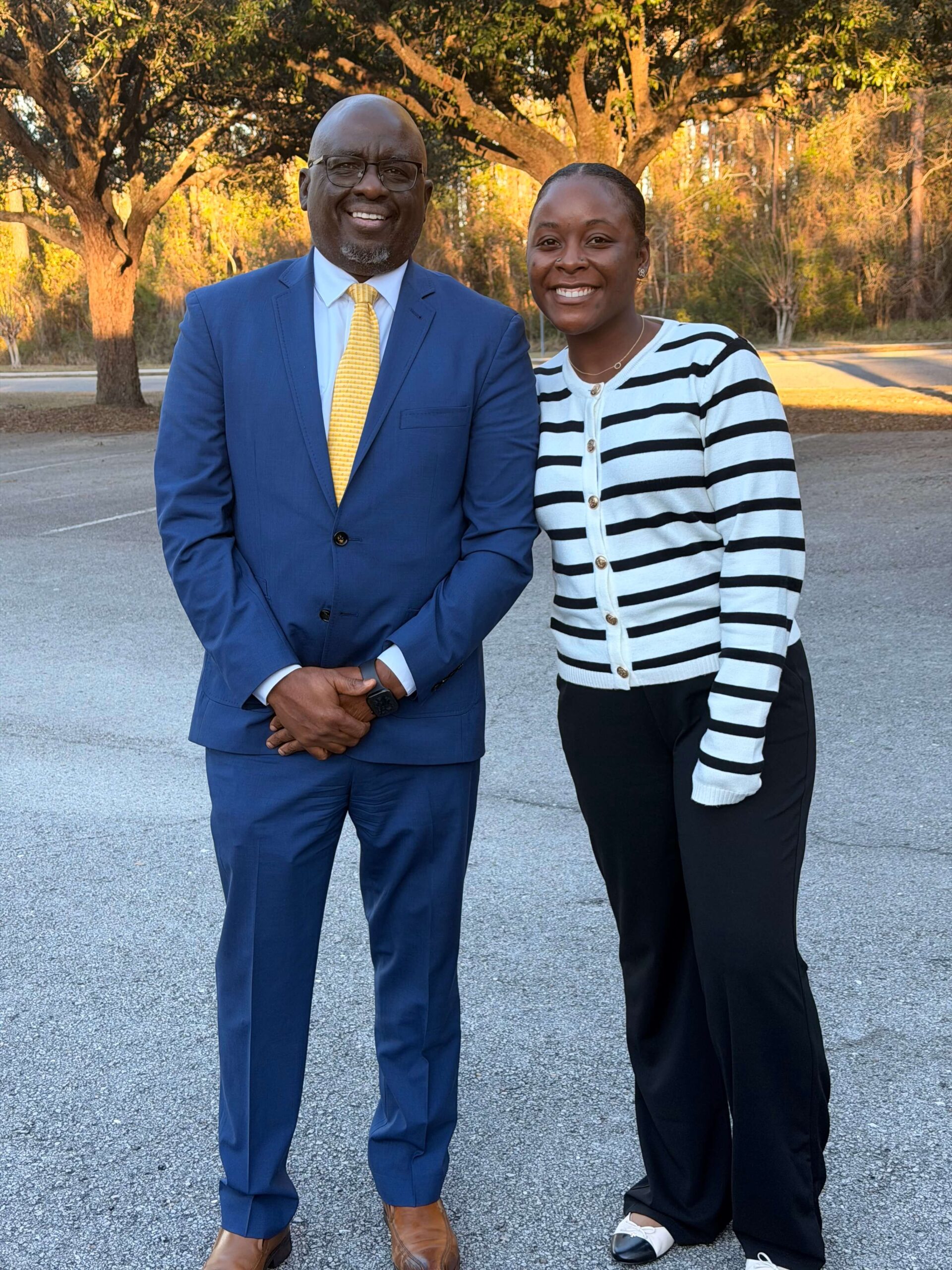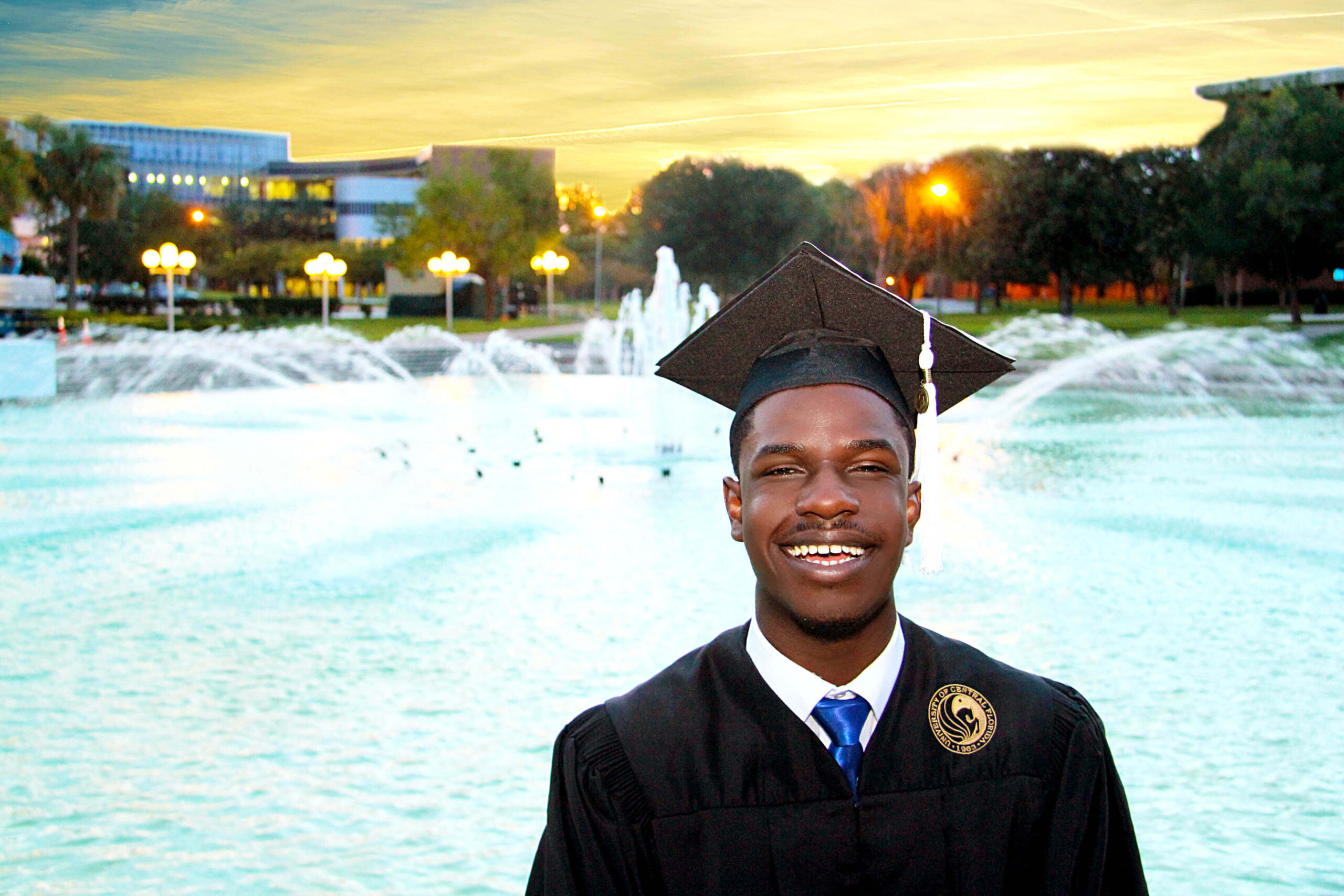Behind the Scenes with Chris Brown ’05
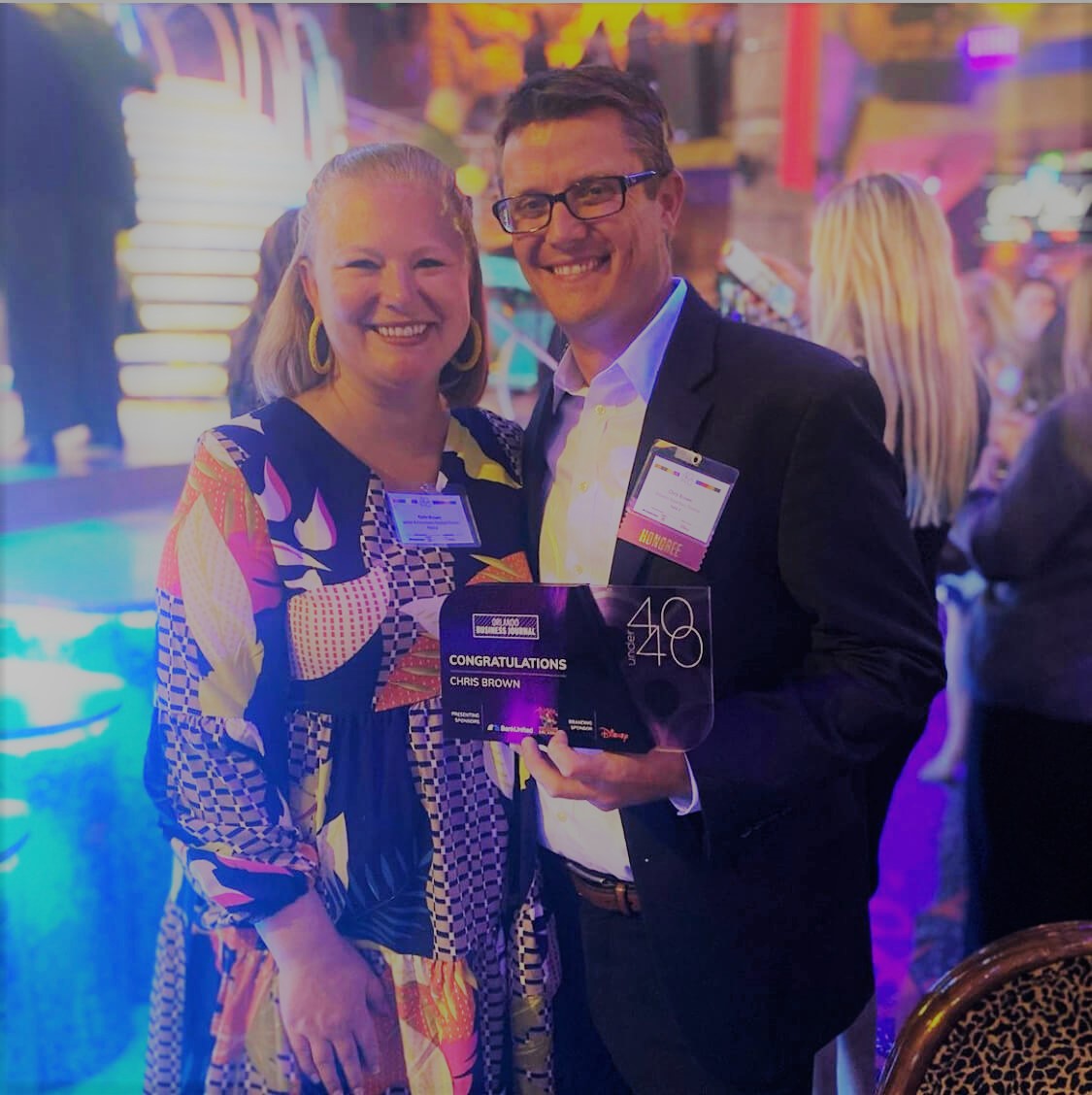
Chris Brown, pictured above with his wife, Katie, was named to the Orlando Business Journal’s 2023 Class of 40 Under 40.As the Executive Director of Orlando Family Stage (formerly Orlando Repertory Theatre), Chris Brown ’05 is on a mission to “empower young people to be brave and empathetic by creating quality theatrical experiences.”
It’s a journey he began while growing up in Gulf Breeze, a small beach town in Florida’s Panhandle.
“I started getting involved in theatre in high school,” Brown says. “There was a lot of camaraderie between us and we quickly became a family – we all kind of did every part of the production, but I mostly leaned into the role of technical director.”
In theatre, a technical director brings a production to life by ensuring that the vision of set designers, costume designers, lighting designers, audio engineers and the other behind-the-scenes professionals is brought to life to exacting specifications.
“I was fascinated by the process,” Brown says. “And I loved building the scenery and adding to the show in that way.”
By the time Brown had graduated, he knew he wanted to focus on that aspect of theatre production. He also knew he wanted to stay in Florida, and after researching various theatre programs, said “There was nothing like UCF in terms of technical theatre.”
At UCF, Brown continued to be fascinated by all aspects of the theatre and absorbed all the experiences that the College of Arts and Humanities offered.
“I guess it’s just always been my work ethic to be prepared whenever opportunities pop up,” Brown says. “And as I learned more about the technical side of theatre, my confidence grew. And whenever people would ask me if I could do something – usually an obscure thing – I just kind of jumped right in.”
Brown had already learned an important lesson: He received the most fulfillment from executing a perfectly timed, perfectly executed show.
“I don’t want to be in the spotlight,” Brown says. “My comfort is being backstage and pulling the rope that no one ever sees, you know? I try to take this mindset in my current role as the executive director.”
After graduating from UCF, Brown married his high school sweetheart, Katie, who had just graduated from FSU. That same summer, the newlyweds moved to Connecticut so Brown could start graduate school at the prestigious Yale School of Drama, where he earned his master’s degree in technical design and production.
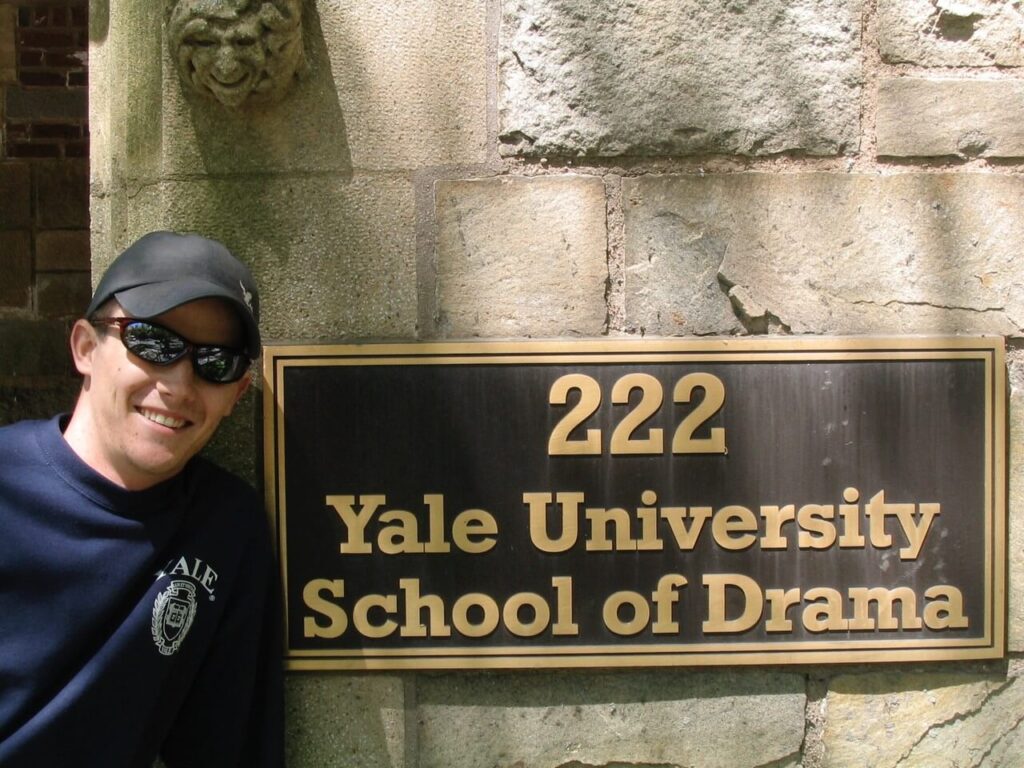
“Katie worked at Yale in the music school,” Brown says. “And the graduate school was unbelievable. It’s connected me for life to the industry, and to hundreds of people that work in and around the ever expanding entertainment sector.”
After graduating from Yale, Brown began working at Hudson Scenic Studio, one of Broadway’s largest scenic design and engineering companies in NYC.
Brown says there was a difference between the genteel ways of working in the South versus the New York/New England work ethic.
“I have Southern hospitality in my blood,” he says. “But what I learned in New York was that if someone is doing something wrong, they need to stop immediately and fix it. At that scale, every second they spend on doing something wrong equals money. It was a way of teaching me the importance of the business side of a project and the business side of entertainment.”
In addition to having a “role” in many Broadway shows, one of Brown’s favorite projects was working on the new Times Square ball.
“I don’t know how it happened, but I was in the right place at the right time,” Brown says. “My official role at Hudson was the automation administrator, and it was primarily an office job.”
The responsibility of those who work in the automation department at Hudson is to make things on stage move without a human. In Chitty Chitty Bang Bang, when the car flies, or in Hamilton when the stage revolves in a circle, these machines are all controlled digitally, and because it’s digital, it can be timed into perfectly executed cues.
“These digital cues keep every performance consistent,” Brown says. The cues can all be programmed ahead of time, so when the Stage Manager calls “go”, every sequence will fire precisely when it should. In theory. Of course, things can and will go wrong, which is why the arts will always rely on some level of the humanities.
In addition to ensuring the maintenance or repairs were being performed on the intricate automation features that Hudson had designed for Broadway performances, he was also assigned the task of being a project manager for the 100th anniversary of the iconic Times Square ball.
Previous balls would appear each New Year’s Eve for the countdown, after which they would be dismantled and stored in a warehouse. In 2007, the Times Square merchants wanted the ball to be a permanent fixture of the heart of the city; they reckoned that the ball deserved prominence year-round, not just on a raucous New Year’s Eve.
The nearly six-ton ball, comprising 2,688 Waterford crystals, 672 LED modules and 32,256 LEDs, was, literally, the biggest project with which Brown had ever been entrusted. (Below, the ball at its halfway point)
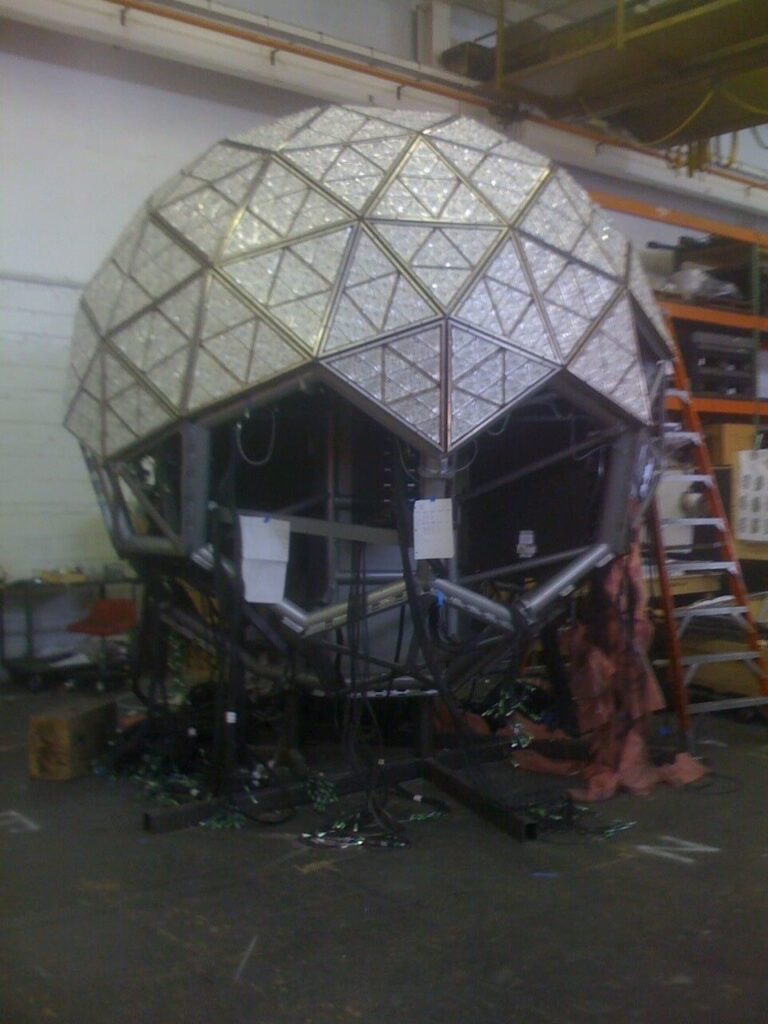
The improved design allows for the ball to be utilized throughout the year on various holidays; its palette can display more than 16 million vibrant colors and the placement of its LEDs can create billions of patterns.
“I was responsible for ordering all of the individual components and ensuring that everything got to Hudson before it went to Manhattan to get installed,” Brown says. “I was a small part of it, but once it was completed, I thought, ‘Wow! I did that, that’s my claim to fame. It was such a cool thing to be a part of.”
Brown had never been in the Times Square crowd on New Year’s Eve. He had never wanted to be there, truth be told. But, he figured, if there was one night he should be there, it should be on December 31, 2007, the inaugural trip of the new ball.
He worked in Yonkers, which was a train away from Times Square in Manhattan, site of the New Year’s Eve festivities. He left work at lunch and met up with some friends at 4 o’clock or so, and the crowd was already backed up nearly a mile away from the ball.
“We would have been so far away from the actual drop that we ended up packing up and going back to Connecticut and watching it on TV,” Brown says. “When I was watching it at home with my family, I got text messages from everybody that knows me, and that was just a great experience that I’ll never forget.”
As the Brown family grew – son Michael was born a few years after Chris Brown graduated from Yale – their circumstances became more challenging.
“All of our families still lived in Florida, and we missed them very much,” Brown says.
And even though Brown and his wife realized they had benefited from incredible experiences, it was time to think about moving home.
As fate would have it, a job as production manager had opened at the Orlando Repertory Theatre (now Orlando Family Stage). Brown was aware of the theatre because of its longstanding relationship with UCF.
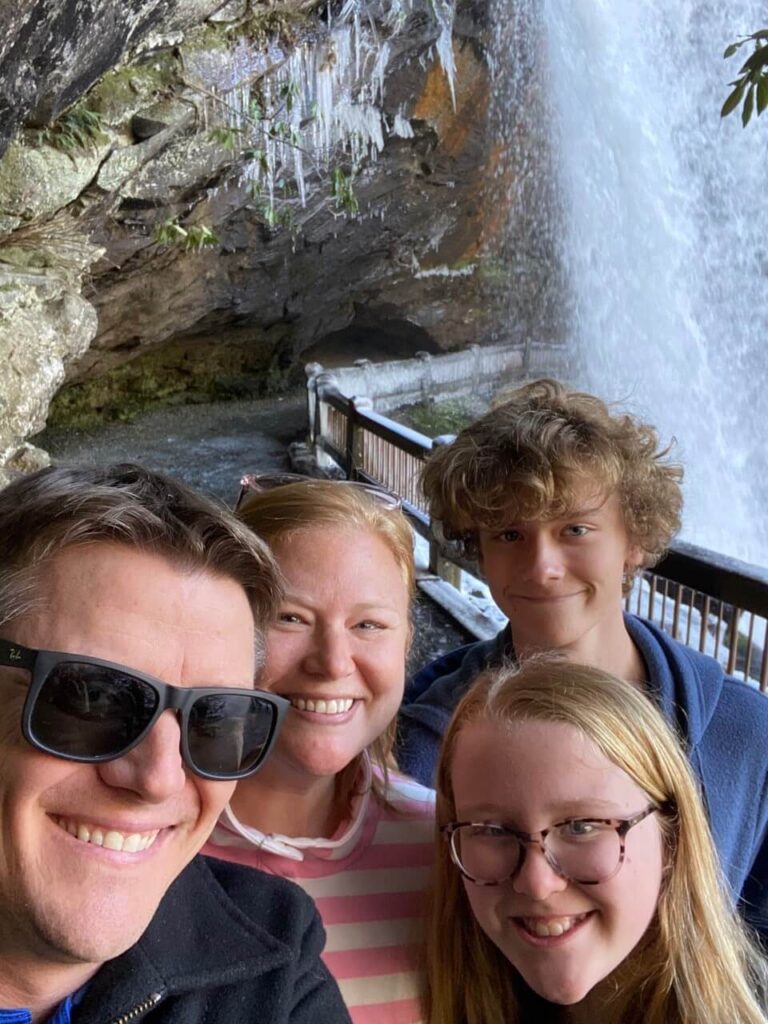
“I had worked in the building a few times as a UCF student,” Brown says. “And so it was comfortable.”
He began to envision Act II of his career, figuring that the gig would be a “steppingstone” to other jobs in the theatre, the theme parks or, perhaps, teaching at UCF.
What he hadn’t realized when he took the job was the scope of the incredible work that the theatre was doing in the community. He was all in. He worked as production manager for eight years, and when the general manager left, Brown told theatre executives that he could do that job, too!
But as the theatre began to grow, and the Brown family continued to grow with the addition of a baby girl, Gracie, in 2011, the two positions became too much for Brown. The experience, however, led him to cultivate more of an interest in administration, and the complexities it offered. He became the interim executive director, and then he was named the executive director in the summer before COVID.
“I was in my current role as Executive Director at Family Stage for six months before the pandemic really exploded,” Brown says. “Navigating the next few years after that has been the hardest thing outside of parenting that I’ve ever experienced.”
Brown says that out of the 60-plus arts organizations in town, Orlando Family Stage was one of only two that did not furlough anyone during COVID. He kept his entire fulltime staff and turned the downtime into a “beautiful time of research and development and trying new things.”
One of the things that brings Brown joy and reinvigorates his passion for theatre is when students in the summer youth academy descend upon Orlando Family Stage to get a taste of what it takes to bring a fully produced production to life.
“They’re enjoying all the people that they’re around, and they are trying to make it all work and come together – and then something really special happens.”
It’s a feeling that reminds him of his own time in high school, working together with other theatre kids.
“We grew to become lifelong friends,” Brown says. “And because of that, it was never work.” (Below, Chris Brown, seated, with his team at Orlando Family Stage)
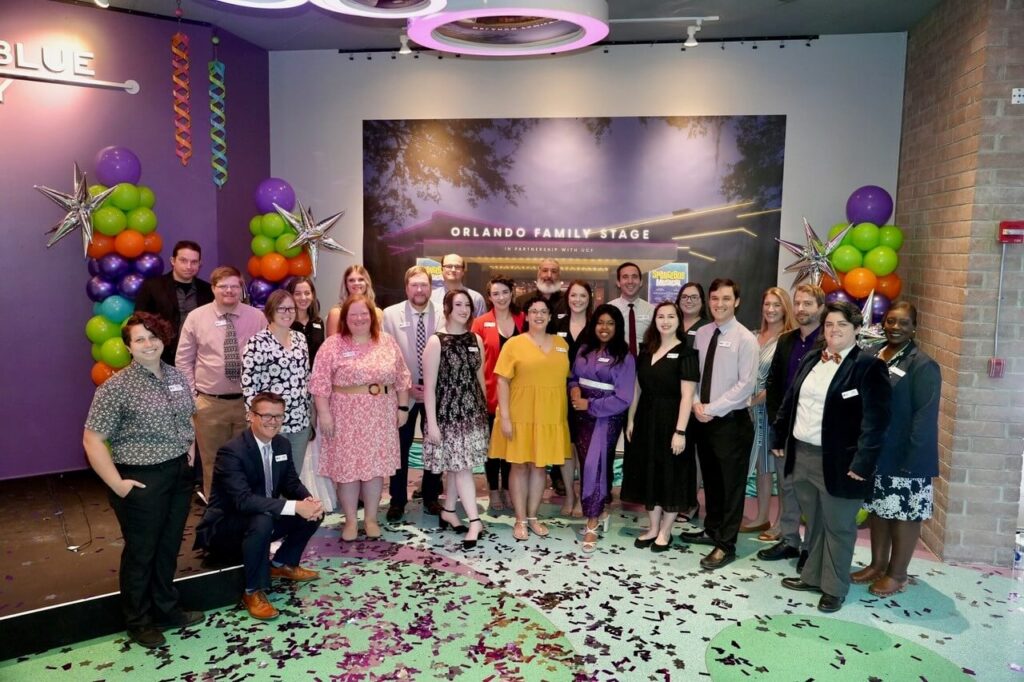
In 2017, Chris and his wife created ClassMax, a software application to help teachers in their classrooms. Their software saves teachers time by tracking meaningful data in the classroom; everything from student accommodations to behavior.
“The pandemic has been difficult on ClassMax. Katie and my jobs were getting better, and the schools were focused on a lot of other important areas. It just ran out of steam. But we did reach thousands of users all over the world, which is pretty cool.”
Brown is involved in our Central Florida community as well. He helped start GOPAR (Greater Orlando Performing Arts Relief) a local non-profit that began to fill a need during the Pandemic helping all of the many artists who were laid off.
A group of passionate arts leaders came together to raise funds and distribute aid through paying rent and bills for artists out of work.
“It just felt like something I needed to do.” Brown says, “I was lucky enough to still have my job, so I wanted to help those who didn’t”
Brown is also an adjunct professor at UCF, where he is teaching a theatre management class each fall. His goal for the class is to introduce his students to the business aspect of theatre and the vast skills needed to run a theater and a small business.
“Recognizing we are a small business is so valuable in creating artists that understand you must operate a good business to keep a theater thriving”.
“I want them to know that running a theatre could mean riding your bike around town doing pop-up shows, or running a big Broadway theatre,” Brown says. “I want to broaden their understanding of what this business is, and what similarities each level of this industry shares.”
This past spring Chris was named “40 under 40” by the Orlando Business Journal. “I can’t decide if I’m more surprised I’ve been honored as a leader in business, running a theater, or if I’m surprised that I’m still under 40!” Chris laughs. “I am humbled by the recognition, truly.”
As someone who has packed a lot of experiences into his resume since leaving UCF, Brown has a special message for anyone who is just starting out in the theatre.
“The journey that you are on is really what’s important,” he says. “I never knew, growing up at the end of a dirt road in Gulf Breeze, Florida that my journey would take me to so many places I never could have dreamed of. Keep dreaming those dreams, working really hard, and pushing yourself to always show up. You can truly do anything you want. You never know where your own path is going to take you.”
